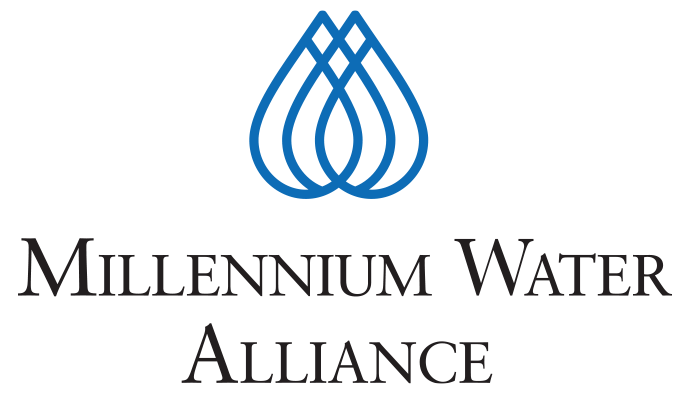- Climate Change Challenges: The cyclical and intensifying droughts in northern Kenya, exacerbated by climate change, result in millions lacking reliable water access, with the government and international bodies providing only temporary, reactive emergency support.
- Groundwater Management Issues: Despite investment in borehole pumps, local communities and governments struggle with operation and maintenance due to a lack of funding, training, and viable service contracts, leading to high water point failure rates.
- DRIP FUNDI Initiative: Launched by the Millennium Water Alliance, Virridy, and the University of Colorado Boulder, and primarily funded by USAID’s BHA, this program aims to create sustainable groundwater demand forecasts and incentivize efficient water system operations to prevent drought emergencies.
- Sustainable Funding Through Carbon Credits: In partnership with Mortenson Construction and the Autodesk Foundation, DRIP FUNDI is generating financing through the sale of carbon credits, ensuring long-term maintenance and improved water access for 120,000 people in Northern Kenya.
Climate change driven drought and challenges in maintaining emergency groundwater supplies have led to millions of people living in the arid regions of Kenya lacking safe, reliable and affordable water throughout the year. Typically, responses to drought have been reactive. Kenyan government support and international emergency assistance are dispatched once the emergency happens in a bid to save lives and livelihoods. This support then disappears when the immediate crisis dissipates. This reactive emergency assistance occurs despite the reality that drought in northern Kenya is cyclical and increasing.
In the past decades throughout northern Kenya, millions of dollars have been spent on the installation of borehole pumps so people can access groundwater. However, evidence shows that local communities and regional governments are not yet able to manage the operations, maintenance and service delivery of groundwater. This is because they lack funding and professional capacity – such as maintenance training, asset management tools, supply chains, and financially viable service contracts. As a result, there have been a high number of water point failures. For example, in Kenya about 35% of rural water pumps were broken before the 2016 drought. This increased to over 55% during the drought because of mechanical failures or depleted groundwater.
To interrupt this negative cycle, the Millennium Water Alliance, Virridy and the University of Colorado Boulder (CU Boulder) developed the Drought Resilience Impact Program Platform (DRIP). DRIP combines the community engagement and security actions taken by the Millennium Water Alliance, national and local government, and local communities in Kenya with the technical expertise of Virridy and CU Boulder, to create actionable groundwater demand forecasts and incentivize water system operations to ensure that when rains fail, water access is secure and costly drought emergencies are prevented.
DRIP was initially developed between 2016 and 2021 under the United States Agency for International Development (USAID) and the Swiss Agency for Development and Cooperation (SDC) funded Kenya RAPID program, which deployed USD $31 million to increase access to water and sanitation for people and water for livestock, and to take steps to restore a healthy rangeland management. Building on the successes and learnings of RAPID, the SDC-funded RAPID+ is running from 2021 to 2026, investing $15.3M dollars to address two core problems and the complex interactions amid changing climate conditions that exacerbate these problems: insufficient access to adequate and sustainable water for multiple uses and declining rangeland resources.
Aligned with RAPID+, the new Drought Resilience Impact Platform-Fixing Uptime Now and Decision Improvement (DRIP FUNDI) is a $2 million USAID Bureau of Humanitarian Assistance (BHA) funded program. DRIP FUNDI aims to secure reliable water supplies for 120,000 people living in the counties of Marsabit, Garissa, Isiolo, Turkana and Wajir in Northern Kenya. It will achieve this through improving uptime at 200 selected boreholes within the five counties to an average of 90% or 11 months of the year.
To address the underlying factor of inadequate finances for repair, MWA and Virridy, supported by the Autodesk Foundation, are in the process of registering the DRIP FUNDI program under the Gold Standard for Global Goals Impact Registry to enable the program to generate financing from the sale of carbon credits. The initial carbon credits from DRIP FUNDI have been purchased at $40 a credit by Mortenson Construction, a leader in renewable energy and sustainable building construction in North America.
This funding will ensure continued borehole repair once the USAID-BHA funding period for the program elapses in March 2025. Carbon credits will be generated from increased borehole uptime and, when needed, water treatment, which will reduce both the use of and demand for communities to boil unsafe water with wood and fossil fuels. Over 70% of the revenue generated from the carbon credits will be used to deliver an on-going water pump maintenance service.
Through these programs, DRIP has included the development and deployment of satellite and cellular connected sensors monitoring the National Drought Management Authority (NDMA)’s emergency response groundwater boreholes. Supported by the National Aeronautics and Space Administration (NASA) and USAID SERVIR program and the United States Geological Survey (USGS), DRIP’s sensor data was combined with geospatial maps and machine learning to deliver spatial interpolations and temporal forecasts of groundwater demand which have been used by the Famine Early Warning System and the Kenya NDMA.
DRIP was recognized in 2020 as an inaugural member of the Million Lives Club Vanguard for positively impacting more than a million people.
